
The Untouched Wilderness of Skole Beskids
Nestled in the heart of Ukraine, the Skole Beskids offers a pristine escape into nature. This mountain range is part of the Carpathians and is known for its lush forests, rolling hills, and clear streams. The Skole Beskids is a haven for hikers and nature lovers, offering a network of trails that meander through diverse landscapes. Whether you are an avid trekker or a casual walker, you will find paths that suit your pace and ability. The region is also rich in wildlife. You may be lucky enough to spot deer, wild boar, or even a lynx. Bird watchers will also be delighted by the variety of species that call this area home. The Skole Beskids is not just about nature; it also has a rich cultural heritage. The local villages are home to traditional Hutsul culture. Here, you can experience authentic Ukrainian hospitality, sample local cuisine, and see traditional crafts. One of the highlights of the Skole Beskids is the Tustan fortress, an ancient rock fortress that dates back to the 9th century. This historical site offers breathtaking views over the surrounding landscape and is a must-visit. Whether you are looking to immerse yourself in nature, explore cultural landmarks, or simply unwind, the Skole Beskids has something to offer every traveler.
Local tips in Skole Beskids
- Pack sturdy hiking boots; the trails can be rugged and uneven.
- Bring insect repellent, especially in the summer months.
- Learn a few basic phrases in Ukrainian; locals appreciate the effort.
- Visit during autumn for stunning foliage and fewer crowds.
- Check the weather forecast before setting out; conditions can change quickly in the mountains.
The Untouched Wilderness of Skole Beskids
Nestled in the heart of Ukraine, the Skole Beskids offers a pristine escape into nature. This mountain range is part of the Carpathians and is known for its lush forests, rolling hills, and clear streams. The Skole Beskids is a haven for hikers and nature lovers, offering a network of trails that meander through diverse landscapes. Whether you are an avid trekker or a casual walker, you will find paths that suit your pace and ability. The region is also rich in wildlife. You may be lucky enough to spot deer, wild boar, or even a lynx. Bird watchers will also be delighted by the variety of species that call this area home. The Skole Beskids is not just about nature; it also has a rich cultural heritage. The local villages are home to traditional Hutsul culture. Here, you can experience authentic Ukrainian hospitality, sample local cuisine, and see traditional crafts. One of the highlights of the Skole Beskids is the Tustan fortress, an ancient rock fortress that dates back to the 9th century. This historical site offers breathtaking views over the surrounding landscape and is a must-visit. Whether you are looking to immerse yourself in nature, explore cultural landmarks, or simply unwind, the Skole Beskids has something to offer every traveler.
When is the best time to go to Skole Beskids?
Unmissable attractions to see
Заповідник Tустань
Explore Tustan Fortress: A breathtaking blend of history and nature in Lviv Oblast, perfect for adventurous tourists seeking cultural experiences.
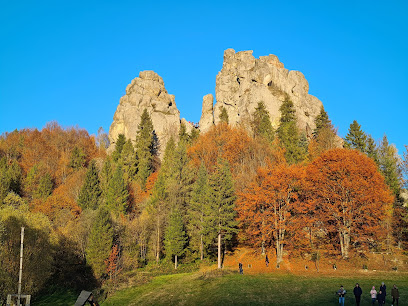
Kamenetsky waterfall
Experience the breathtaking beauty of Kamenetsky Waterfall in Lviv Oblast, a perfect escape into nature's serene embrace.
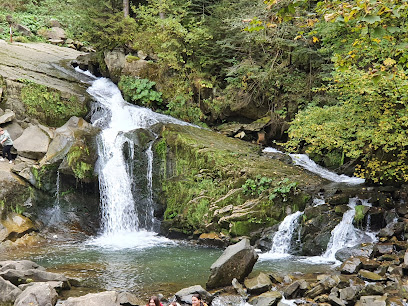
Central Park Adamivka
Explore the natural beauty and tranquil pathways of Central Park Adamivka, a must-visit destination in Truskavets, Ukraine.
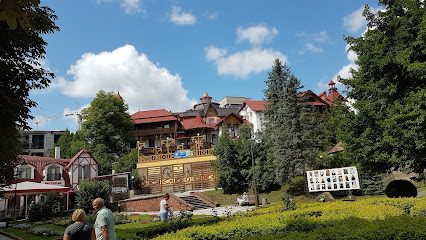
Falls Sopit
Experience the breathtaking beauty of Falls Sopit, a hidden gem in Lviv Oblast, Ukraine, perfect for nature lovers and adventure seekers.
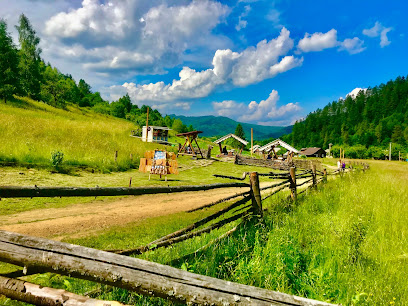
Landshaftnyy Park Panteleymona Tsilytelya
Experience the beauty and tranquility of Landshaftnyy Park Panteleymona Tsilytelya in Skhidnytsya, a perfect blend of nature and art.
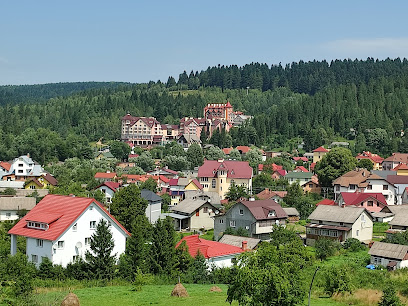
Hurkalo waterfall
Experience the breathtaking beauty of Hurkalo Waterfall in Lviv Oblast, a natural paradise perfect for adventure and tranquility.
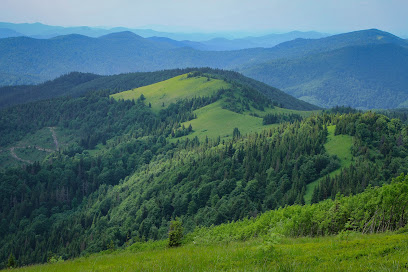
Michael Bilas art Museum
Explore the captivating art and cultural heritage at Michael Bilas Art Museum in Truskavets, a unique destination for art lovers and tourists alike.
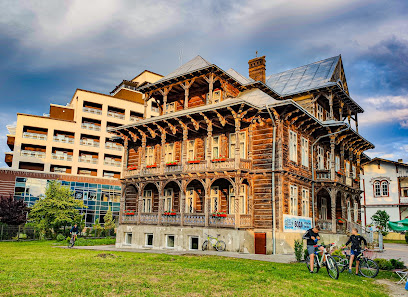
Vodospad Laznyy
Experience the serene beauty of Vodospad Laznyy, a stunning waterfall in Lviv Oblast, perfect for nature lovers and adventurers alike.
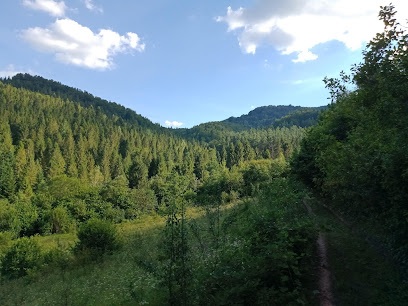
Джерело №1
Experience the therapeutic allure of Dzherelo #1 in Skhidnytsya, a top tourist destination for relaxation, nature, and wellness in Lviv Oblast.
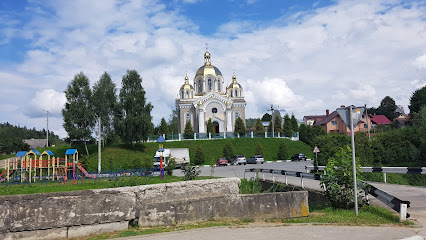
Zakynuta Nedobudovana Damba
Discover the mysterious beauty of Zakynuta Nedobudovana Damba, an unfinished dam nestled in the stunning landscapes of Lviv Oblast, Ukraine.
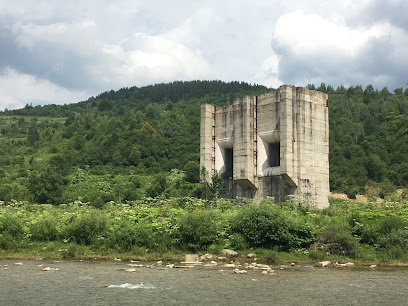
Ужоцький перевал
Experience the stunning beauty of Uzhotsky Pass in Zakarpattia Oblast, Ukraine, where breathtaking landscapes and adventure await every visitor.
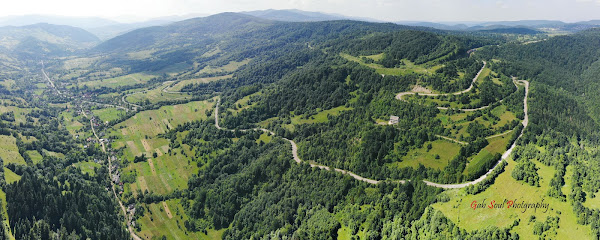
Hora Heroyiv Nebesnoyi Sotni
Explore the inspiring memorial of Hora Heroyiv Nebesnoyi Sotni in Lviv Oblast, a tribute to Ukrainian heroes and a symbol of resilience.
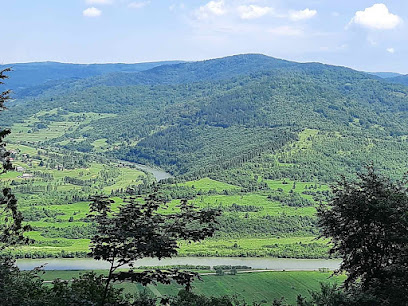
Krushelʹnytsʹkyy Vodospad
Experience the breathtaking beauty of Krushel'nyts'kyy Vodospad, a serene waterfall nestled in the heart of Lviv Oblast's lush landscapes.
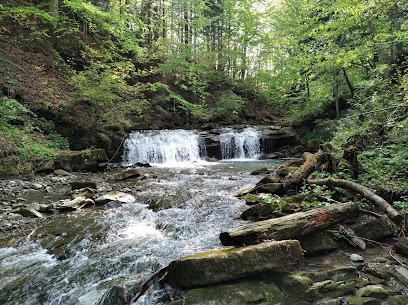
Скелі Юшкова яма
Explore Skelivska Yamna: a hidden gem in Lviv Oblast, where stunning landscapes and rich cultural heritage await every traveler.
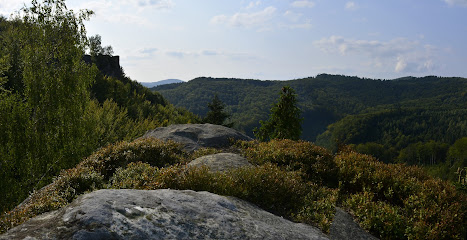
Sokoliv Kaminʹ
Discover the breathtaking Sokoliv Kamin in Lviv Oblast, a natural wonder perfect for outdoor adventures and serene escapes amidst stunning landscapes.
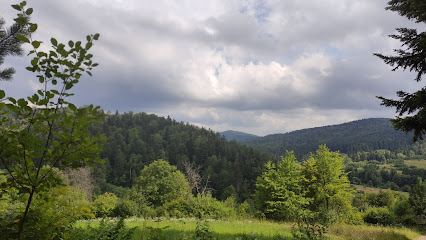
Essential places to dine
Kryivka
Discover Kryivka in Lviv - An enchanting underground restaurant serving authentic Ukrainian dishes amidst historical charm.
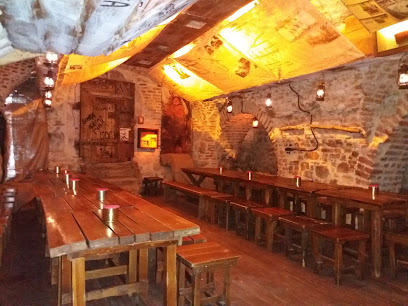
Baczewski Restaurant
Experience modern Ukrainian cuisine at Baczewski Restaurant in Lviv - where tradition meets innovation amidst an enchanting atmosphere.
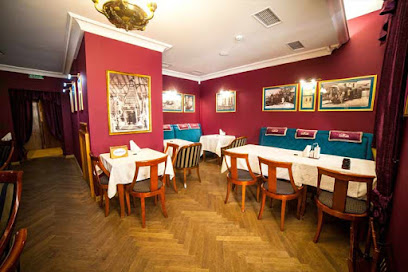
Ostannya Barykada
Discover Ostannya Barykada: A vibrant restaurant serving authentic Ukrainian cuisine in Kyiv's iconic Maidan Nezalezhnosti.
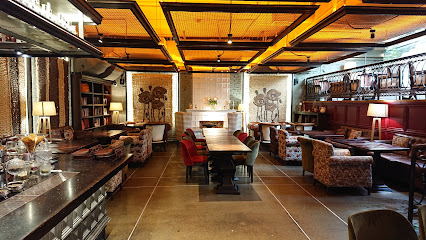
Chachapuri Restaurant
Experience authentic Georgian cuisine at Chachapuri Restaurant in Kyiv—home of delicious khachapuri and warm hospitality.
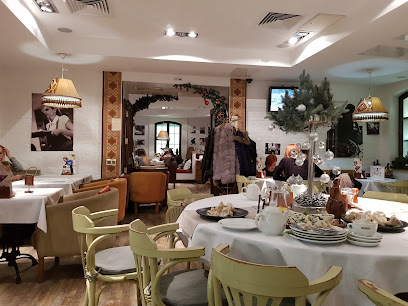
Atlas
Discover authentic Ukrainian flavors at Atlas in Lviv's vibrant Rynok Square—where every meal tells a story.
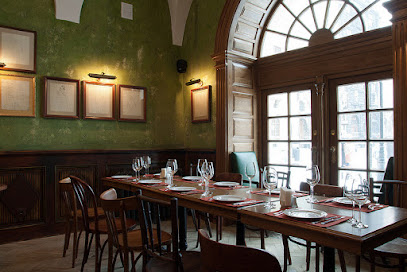
Krasna sadyba
Experience authentic Ukrainian flavors and warm hospitality at Krasna Sadyba in Yaremche - your gateway to culinary bliss.
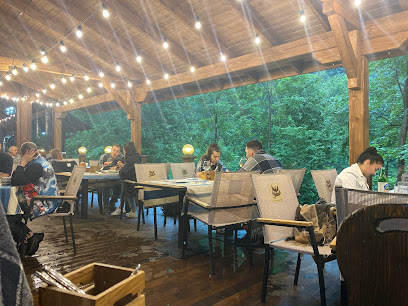
Pervak
Discover authentic Ukrainian cuisine at Pervak in Kyiv – where tradition meets flavor in a cozy atmosphere.
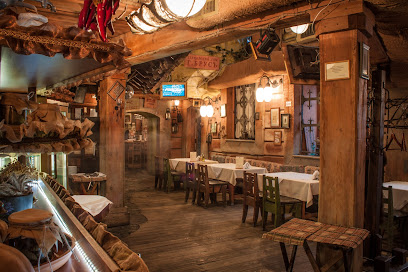
KANAPA restaurant
Experience authentic Ukrainian cuisine with a modern twist at KANAPA Restaurant in Kyiv—where tradition meets innovation.
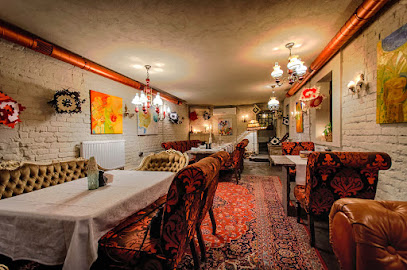
Golden Trout
Discover authentic Ukrainian cuisine at Golden Trout in Korostiv - where tradition meets taste amidst stunning natural beauty.
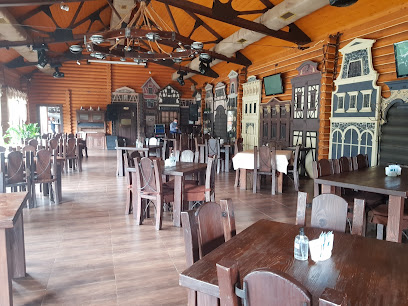
Hutorets na Dnipri
Experience authentic Ukrainian cuisine at Hutorets na Dnipri, where stunning river views meet culinary excellence in Kyiv.
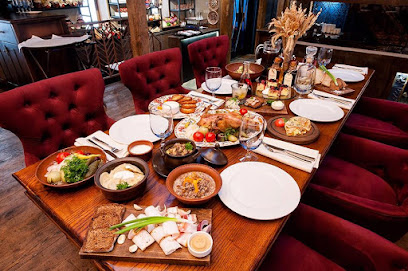
PetruS-ь
Discover authentic Ukrainian flavors at PetruS-ь in Kyiv - where tradition meets culinary excellence.
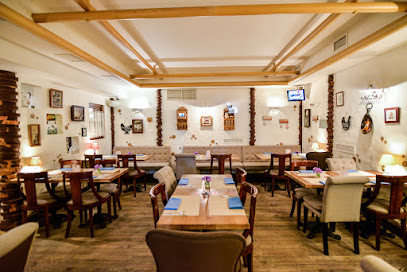
Trapezna Idey
Discover authentic Ukrainian cuisine at Trapezna Idey – where tradition meets taste in the heart of Lviv.
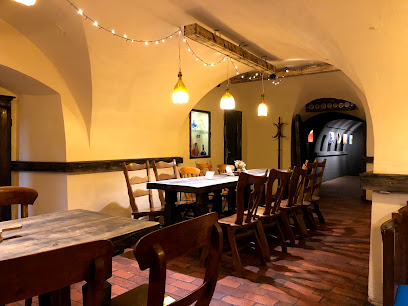
Osonnya Carpathians Spa Hotelʹ U Skhidnytsi
Experience tranquility at Osonnya Carpathians Spa Hotel—your ultimate retreat with luxurious spa services amidst breathtaking nature.
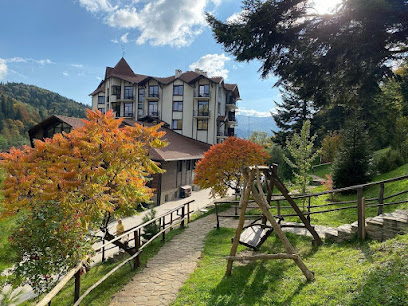
Pretty High Kitchen
Discover unique Ukrainian flavors at Pretty High Kitchen in Lviv—where exquisite dishes meet breathtaking views.
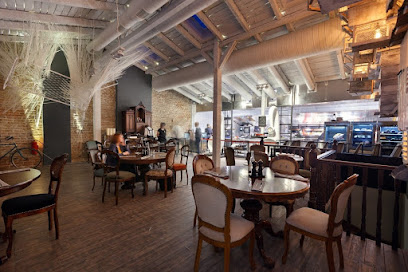
Тандир
Discover Тандир: A Culinary Haven in Truskavets with Live Music and Authentic Ukrainian Dishes.
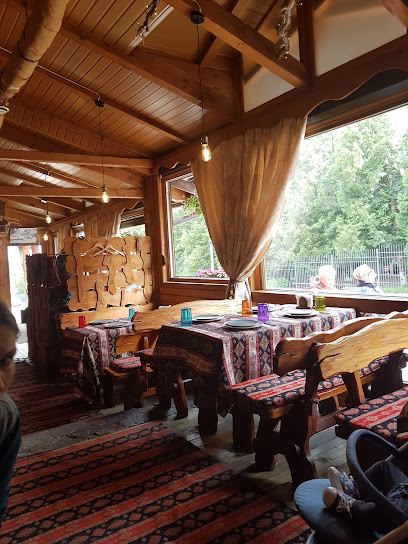
Markets, malls and hidden boutiques
Skolivski Beskydy National Park
Discover Skolivski Beskydy National Park, a hidden gem in Ukraine, where nature thrives and adventure awaits in every corner.
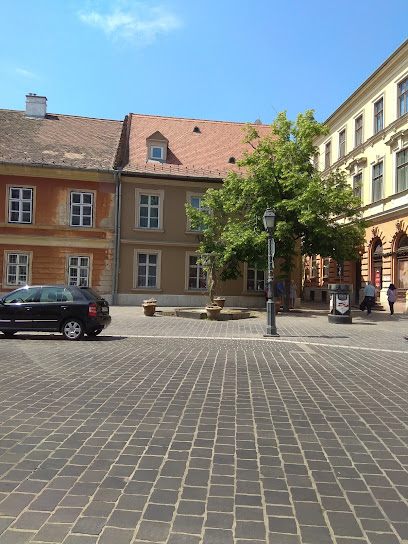
Lviv handmade chocolate
Experience the rich flavors of Lviv with handcrafted chocolates and a cozy atmosphere at Lviv Handmade Chocolate in Truskavets.
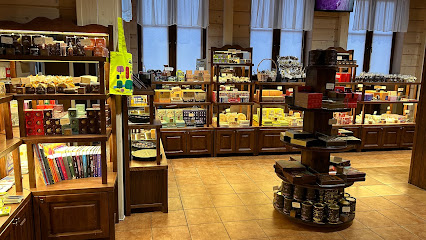
ATB
Discover ATB, a leading discount supermarket in Lviv Oblast, where quality meets affordability for budget-savvy travelers.
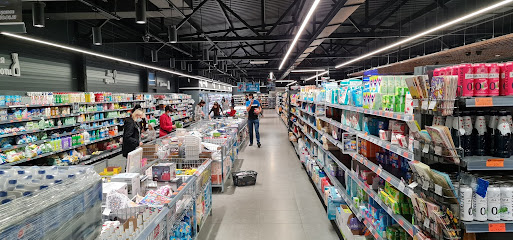
Evropa
Discover the vibrant shopping haven of Evropa in Truskavets, perfect for retail therapy and dining experiences amidst beautiful surroundings.
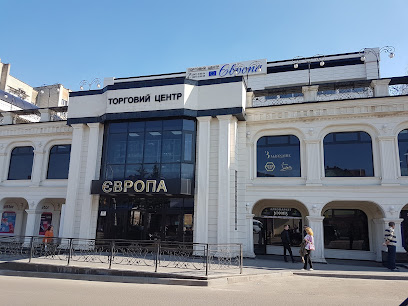
Produktovyy Rynok
Experience the flavors of Ukraine at Produktovyy Rynok, Truskavets' vibrant grocery store offering fresh produce and local specialties.
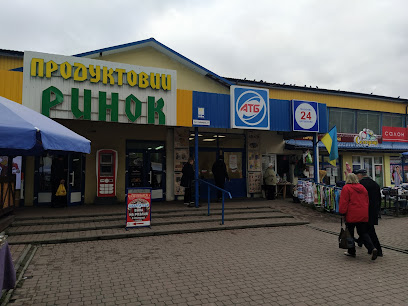
Rukavychka
Explore Rukavychka in Skhidnytsya for a taste of local groceries and mouthwatering pizza takeaway, perfect for every traveler.
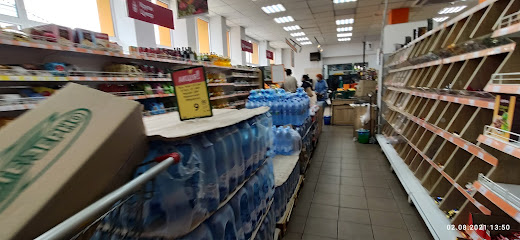
Maksymus
Discover Maksymus: a vibrant shopping mall in Drohobych offering a unique blend of local culture, retail, and dining experiences.
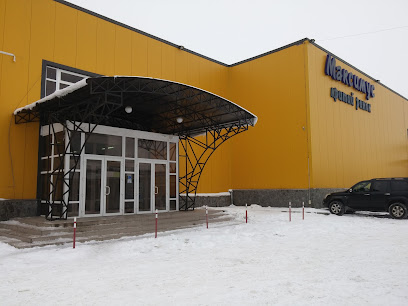
Товари з Німеччини - магазин GUTEN TAG
Discover the flavors of Germany at Guten Tag in Skhidnytsya, your go-to store for authentic German products and culinary delights.
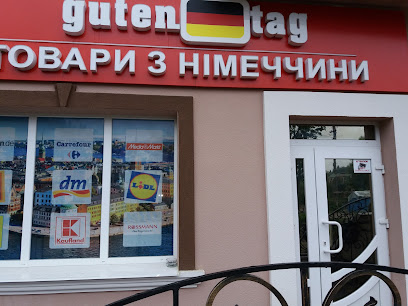
Pleyada
Explore Pleyada in Truskavets for unique souvenirs, digital printing services, and a blend of local creativity and tradition that defines the region.
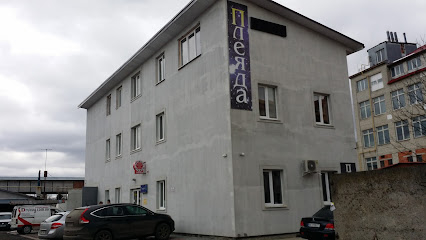
Shokoladnyy Butik
Discover the sweet side of Truskavets at Shokoladnyy Butik, where every chocolate is a masterpiece waiting to be savored.
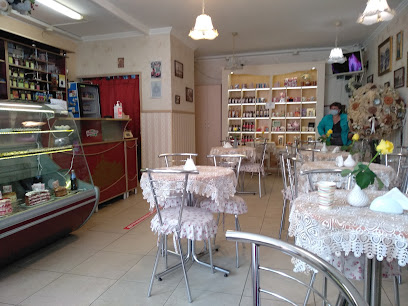
EVA
Explore EVA in Boryslav for top-quality cosmetics and unique home goods reflecting local craftsmanship.
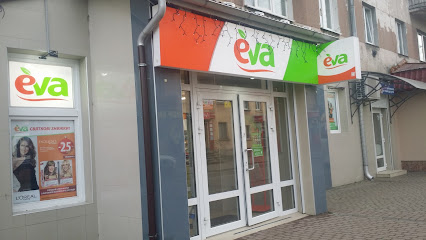
Skole Beskids
Explore the breathtaking Skole Beskids Mountain Range in Lviv Oblast, where nature meets adventure in a stunning Ukrainian landscape.
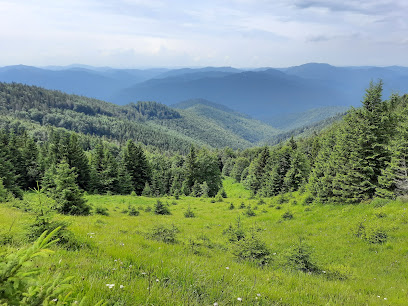
Tts Kub
Explore Tts Kub in Truskavets: a vibrant shopping mall with local flair, diverse dining, and family-friendly entertainment.
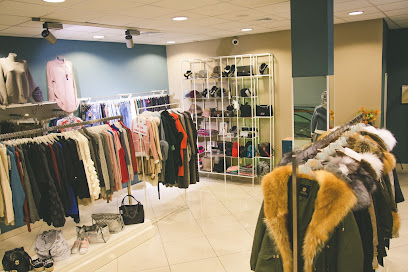
TCROSS.shop
Explore TCROSS.shop, Truskavets' premier online destination for unique Ukrainian products and souvenirs.
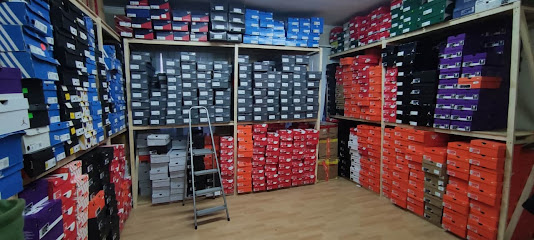
Craft Market
Explore Drohobych's Craft Market for a unique blend of local artistry and delicious culinary treats, showcasing the best of Ukrainian culture.
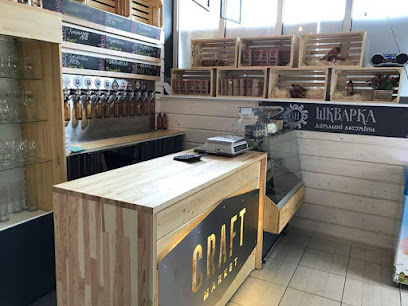
Essential bars & hidden hideouts
Dublin
Discover Dublin's incredible pubs, where Irish culture, music, and delightful brews come together in an unforgettable experience.
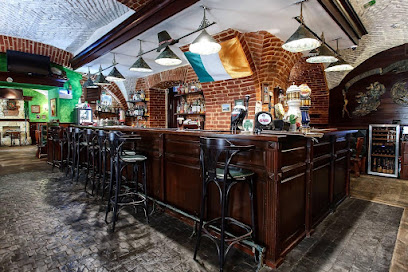
Ресторан Kluberg
Experience authentic Ukrainian and European cuisine at Ресторан Kluberg in Truskavets, a culinary haven for every traveler.
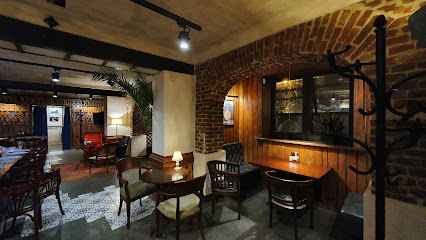
Dublin Irish Pub
Discover the heart of Irish hospitality at Dublin Irish Pub in Svalyava, featuring authentic cuisine, a vibrant atmosphere, and live entertainment.
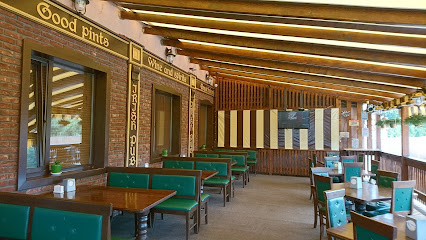
Fellini Piano Bar Grill&Wine
Discover the charm of Drohobych at Fellini Piano Bar Grill & Wine, where exquisite dining meets lively nightlife in a sophisticated setting.
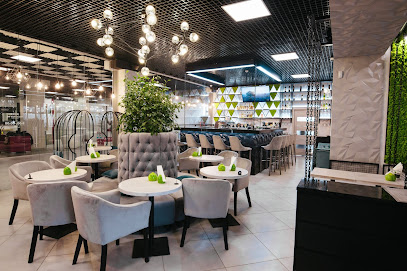
Marta
Discover Marta, a charming bar in Truskavets, offering a delightful selection of drinks and a cozy atmosphere for tourists and locals alike.
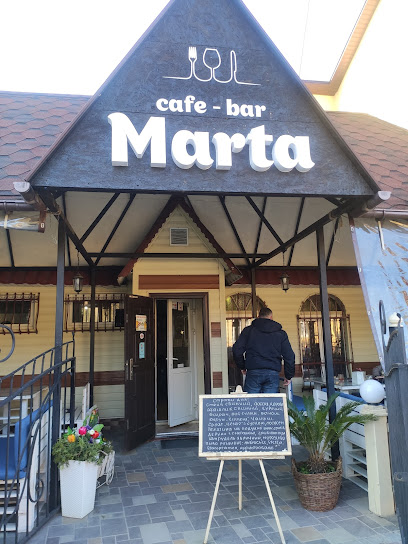
FreeHouse
Discover the vibrant flavors of FreeHouse, a top gastropub in Stryi offering delicious food, craft beers, and a welcoming atmosphere for all tourists.
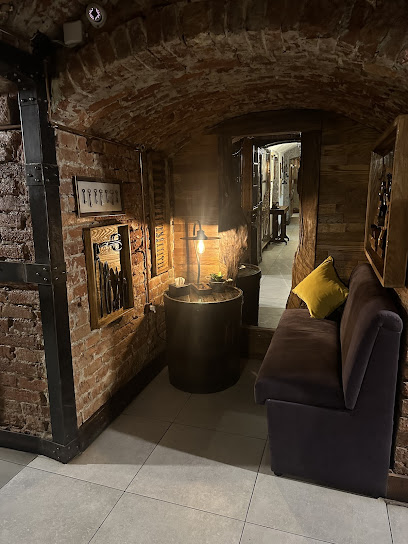
Provans
Explore Provans in Bolekhiv for a unique culinary experience blending Ukrainian and international flavors in a cozy atmosphere.
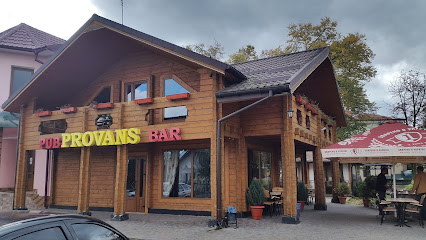
gastroPub KABINET
Discover the vibrant atmosphere and delicious cuisine at GastroPub KABINET in Drohobych, where local flavors meet modern dining.
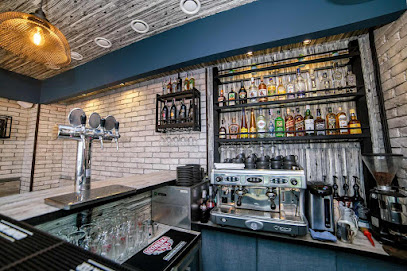
Kholodni Nohy
Experience the authentic taste of Ukraine at Kholodni Nohy, a lively brewpub in Stryi serving traditional dishes and local craft beers.
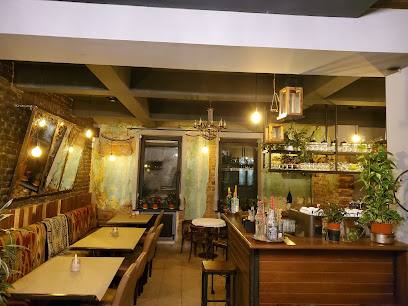
Бар 712 км, Шашлик
Discover the flavors of Ukraine at Bar 712 km, a charming stop on the M-06 highway renowned for its delicious shashlik and warm hospitality.
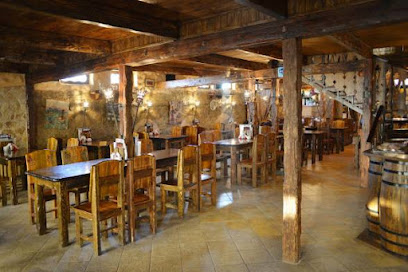
The Bar
Experience the vibrant fusion of sushi, hookah, and lounge culture at The Bar in Slavs'ke, where relaxation meets culinary delight.
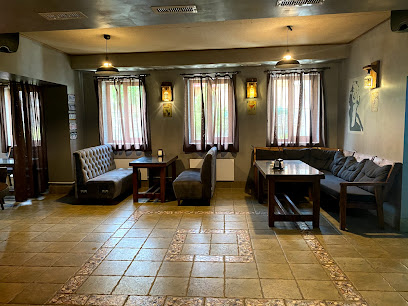
Chili Bar
Experience the vibrant atmosphere of Chili Bar in Slavs'ke, where hookah, bowling, and karaoke come together for an unforgettable night out.
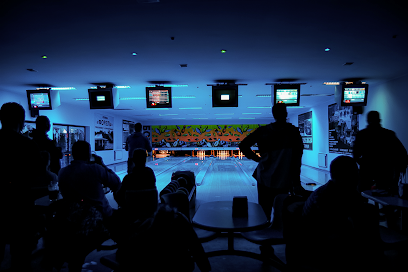
Mirazh
Discover the cozy charm of Mirazh, a bar and cafe in Truskavets, offering local flavors and a welcoming atmosphere for all visitors.
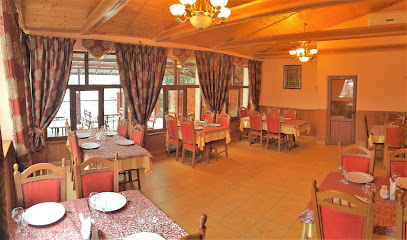
New York
Experience the best of leisure and entertainment at New York in Dolyna, a vibrant café with disco, karaoke, and relaxation services.
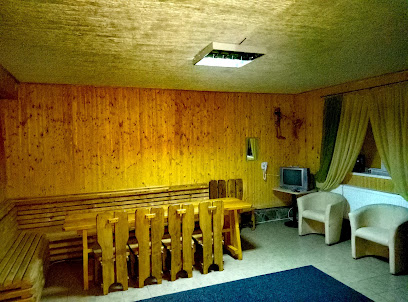
Local Phrases about Skole Beskids
-
- HelloПривіт
[Prývit] - GoodbyeДо побачення
[Do pobachennya] - YesТак
[Tak] - NoНі
[Ni] - Please/You're welcomeБудь ласка
[Budʹ laska] - Thank youДякую
[Dyakuyu] - Excuse me/SorryВибачте
[Vybachte] - How are you?Як справи?
[Yak spravy?] - Fine. And you?Добре. А ви?
[Dobre. A vy?] - Do you speak English?Ви говорите англійською?
[Vy hovoryte anhliysʹkoyu?] - I don't understandЯ не розумію
[Ya ne rozumiyu]
- HelloПривіт
-
- I'd like to see the menu, pleaseЯ б хотів подивитися меню, будь ласка
[Ya b khotiv podyvytysya meny, budʹ laska] - I don't eat meatЯ не їм м'ясо
[Ya ne yim m'yaso] - Cheers!Будьмо!
[Budʹmo!] - I would like to pay, pleaseЯ б хотів оплатити, будь ласка
[Ya b khotiv oplatyty, budʹ laska]
- I'd like to see the menu, pleaseЯ б хотів подивитися меню, будь ласка
-
- Help!Допоможіть!
[Dopomozhitʹ!] - Go away!Відійдіть!
[Vidiyditʹ!] - Call the Police!Викличте поліцію!
[Vyklychte politsiyu!] - Call a doctor!Викличте лікаря!
[Vyklychte likarya!] - I'm lostЯ загубився
[Ya zahubyvsya] - I'm illЯ хворий
[Ya khvoryy]
- Help!Допоможіть!
-
- I'd like to buy...Я б хотів купити...
[Ya b khotiv kupity...] - I'm just lookingЯ просто дивлюсь
[Ya prosto dyvlyusʹ] - How much is it?Скільки це коштує?
[Skilʹky tse koshtuye?] - That's too expensiveЦе занадто дорого
[Tse zanadto doroho] - Can you lower the price?Чи можете ви знизити ціну?
[Chy mozhete vy znyzyty tsinu?]
- I'd like to buy...Я б хотів купити...
-
- What time is it?Котра година?
[Kotra hodyna?] - It's one o'clockОдна година
[Odna hodyna] - Half past (10)Пів на одинадцяту
[Piv na odynadtsyatu] - MorningРанок
[Ranok] - AfternoonДень
[Denʹ] - EveningВечір
[Vechir] - YesterdayВчора
[Vchora] - TodayСьогодні
[Sʹohodni] - TomorrowЗавтра
[Zavtra] - 1Один
[Odyn] - 2Два
[Dva] - 3Три
[Try] - 4Чотири
[Chotyry] - 5П'ять
[P'yatʹ] - 6Шість
[Shistʹ] - 7Сім
[Sim] - 8Вісім
[Visim] - 9Дев'ять
[Deyatʹ] - 10Десять
[Desyatʹ]
- What time is it?Котра година?
-
- Where's a/the...?Де є/знаходиться...?
[De ye/znakhodytsya...?] - What's the address?Яка адреса?
[Yaka adresa?] - Can you show me (on the map)?Чи можете ви мені показати (на мапі)?
[Chy mozhete vy meni pokazaty (na mapi)?] - When's the next (bus)?Коли наступний (автобус)?
[Koly nastupnyy (avtobus)?] - A ticket (to ....)Квиток (до ....)
[Kvytok (do ....)]
- Where's a/the...?Де є/знаходиться...?
History of Skole Beskids
-
The Skole Beskids region, nestled in the Carpathian Mountains, has been inhabited since ancient times. Archaeological findings suggest that early Slavic tribes settled in this area around the 6th century AD. These early inhabitants were primarily engaged in agriculture, hunting, and basic crafts, contributing to the region's early development.
-
During the 10th and 11th centuries, the Skole Beskids region became part of the Kyivan Rus', one of the most influential medieval states in Eastern Europe. This period saw the establishment of fortified settlements and the spread of Christianity, which left a lasting impact on the cultural and religious landscape of the area.
-
In the 14th century, the Skole Beskids came under the control of the Polish-Lithuanian Commonwealth. This era brought significant changes, including the introduction of Polish feudal systems and the influx of Polish nobility. The region benefited from increased trade and cultural exchanges, yet also faced numerous conflicts and uprisings.
-
The Skole Beskids are home to the Hutsuls, an ethno-cultural group known for their distinct traditions, crafts, and folklore. The Hutsuls have lived in the Carpathian region for centuries, maintaining a unique way of life characterized by vibrant clothing, intricate woodwork, and lively music and dance. Their cultural heritage remains a vital part of the region's identity.
-
In the late 18th century, the region was annexed by the Austro-Hungarian Empire. This period saw the development of infrastructure, including railways and roads, which facilitated trade and tourism. Austrian influence also brought new architectural styles and administrative reforms that shaped the modern character of the Skole Beskids.
-
The Skole Beskids experienced significant turmoil during World War II, with battles and occupations by both Nazi and Soviet forces. Following the war, the region became part of the Soviet Union, leading to major socio-economic changes. Collectivization and industrialization efforts during the Soviet era transformed the landscape and livelihoods of the local population.
-
Since Ukraine gained independence in 1991, the Skole Beskids have seen a resurgence in cultural pride and economic development. Efforts to preserve natural beauty and promote tourism have been successful, attracting visitors to explore the region's rich history, stunning landscapes, and vibrant local culture.
Skole Beskids Essentials
-
Skole Beskids is located in the Lviv Oblast of Ukraine. The nearest major city with an international airport is Lviv, approximately 110 kilometers away. From Lviv, you can take a train, bus, or rent a car to reach Skole. The train journey takes around 2 to 3 hours and offers a scenic route through the Carpathian Mountains. Buses and minibuses (marshrutkas) are available from Lviv bus station and provide an economical way to reach Skole.
-
Within Skole Beskids, public transportation options include local minibuses (marshrutkas) that connect various towns and villages. Taxis are also available and relatively inexpensive. For exploring remote areas and hiking trails, renting a car or hiring a local guide is recommended. Biking is another popular way to explore the picturesque landscapes of the Skole Beskids.
-
The official currency in Ukraine is the Ukrainian Hryvnia (UAH). Credit cards are accepted in most hotels, restaurants, and shops, but it's advisable to carry cash, especially when visiting rural areas. ATMs are available in larger towns like Skole, but it's wise to withdraw sufficient cash in Lviv before traveling to more secluded areas.
-
Skole Beskids is generally a safe destination for tourists. However, like any travel destination, it's advisable to take standard precautions. Avoid walking alone at night in unfamiliar areas and keep an eye on your belongings in crowded places. There are no specific high-crime areas targeting tourists, but it's always best to stay vigilant and aware of your surroundings.
-
In case of emergency, dial 112 for immediate assistance. The local police station and medical facilities are available in Skole. It is recommended to have travel insurance that covers medical emergencies. For minor health issues, there are pharmacies in the town where you can purchase over-the-counter medications.
-
Fashion: Do dress modestly, especially when visiting religious sites. Avoid wearing overly revealing clothing. Religion: Do respect local customs and traditions. Always remove your hat and cover your shoulders when entering churches. Public Transport: Do be respectful and give up your seat to elderly passengers. Don't eat or drink on public transport. Greetings: Do greet people with a handshake. A warm smile and a polite greeting in Ukrainian, such as 'Dobry den' (Good day), is appreciated. Eating & Drinking: Do try local delicacies and accept food offerings graciously. Don't refuse hospitality, as it is considered impolite.
-
To experience Skole Beskids like a local, visit the local markets where you can buy fresh produce and traditional Ukrainian goods. Engage with locals, as they are often friendly and willing to share stories about the region's history and culture. Don't miss visiting the Tustan Fortress, an archaeological and natural monument with breathtaking views. For a unique experience, participate in local festivals and cultural events, which showcase traditional music, dance, and crafts.
Nearby Cities to Skole Beskids
-
Things To Do in Lviv
-
Things To Do in Uzhhorod
-
Things To Do in Ivano-Frankivsk
-
Things To Do in Rzeszow
-
Things To Do in Prešov
-
Things To Do in Košice
-
Things To Do in Satu Mare
-
Things To Do in Baia Mare
-
Things To Do in Nyiregyhaza
-
Things To Do in Ternopil
-
Things To Do in Tarnow
-
Things To Do in Poprad
-
Things To Do in Miskolc
-
Things To Do in Debrecen
-
Things To Do in Chernivtsi









